Global Sustainability Seafood Initiative

The GSSI is an initiative whose mission is to ensure confidence in the supply and promotion of certified seafood, as well as promote certification schemes for these sea products. This way, this initiative wants to achieve more sustainable seafood for everybody.
Aims of GSSI
GSSI uses a tool of global reference (Global Benchmark Tool) to provide confidence about certificated seafood and promote improvements in certification schemes.
GSSI provides a global platform for multiple interested parties to collaborate and exchange knowledge about seafood sustainability.
GSSI collaborates with the Consumer Goods Forum’s Sustainable Supply Chain Initiative (SSCI) in order to develop a reference point for specific social compliance of seafood.

GSSI and the Tuna Traceability Declaration
FAO | ILO | IMO
Publications
a
IMO has developed, in collaboration with the Food and Agriculture Organization (FAO) and the International Labor Organization (ILO), a number of non-binding documents.



Guidance Document on Training and Certification of Fishing Vessel Personnel (FAO/ILO/IMO)
The purpose of this document is to provide guidelines for the organization, revision or implementation of national training plans and courses for the vocational training of any category of fishing vessel personnel.
Safety code for fishermen and fishing vessels
The purpose of the Code is to provide information in order to promote the safety and health of crew on board fishing vessels. Part A of the Code focuses on practical health and safety guidelines for skippers and crews, while Part B is intended to serve as a guide for those responsible for the development of national laws and regulations.
FAO-ILO-IMO Voluntary Guidelines for the design, construction and equipment of small fishing vessels
This document sets out voluntary guidelines on the design, construction and equipment of small fishing vessels between 12 m and 24 m in length, based on the points identified in the safety codes.
